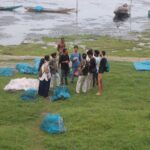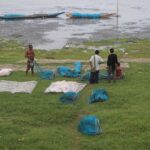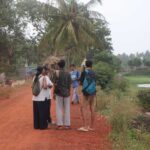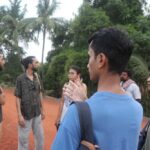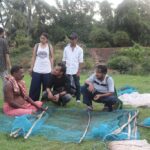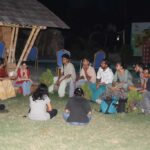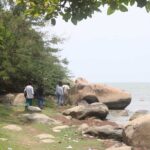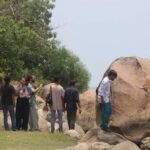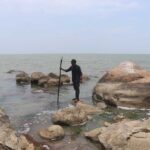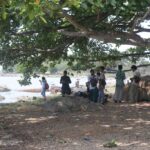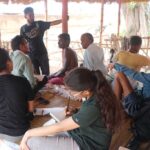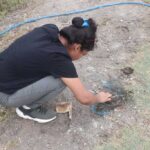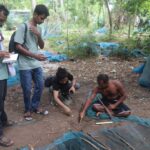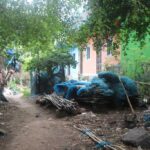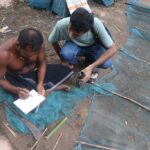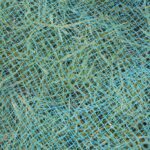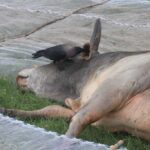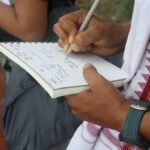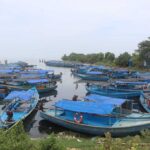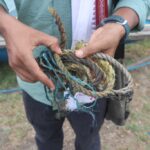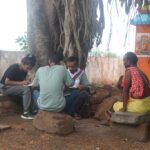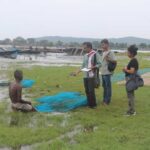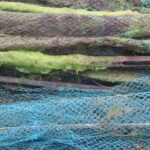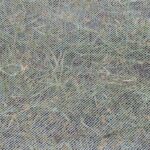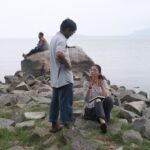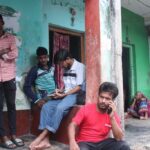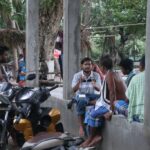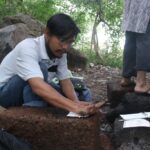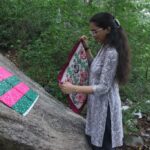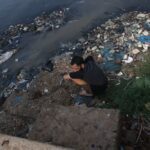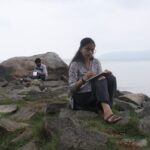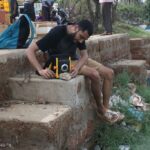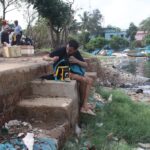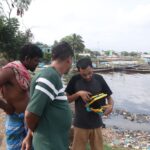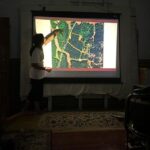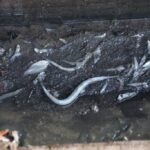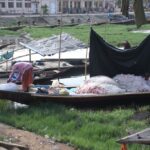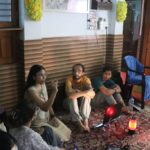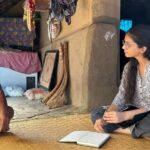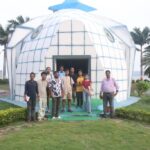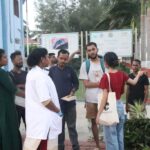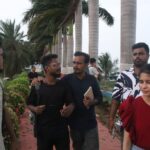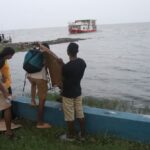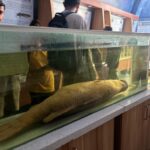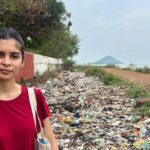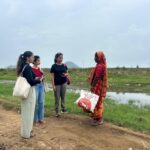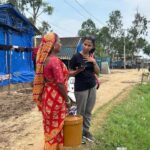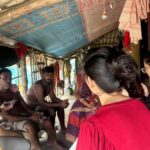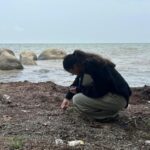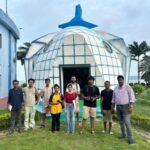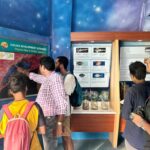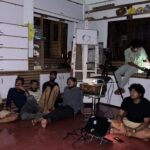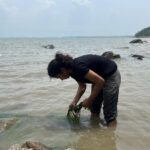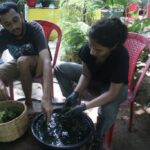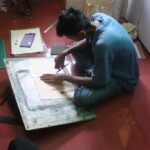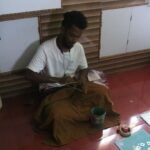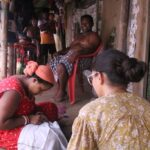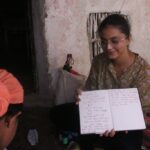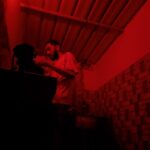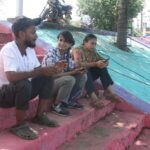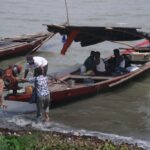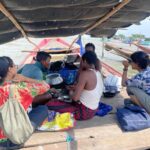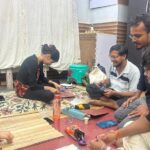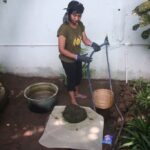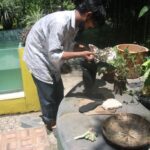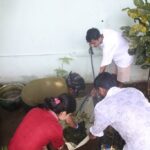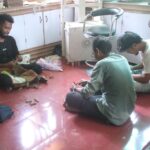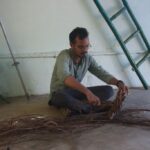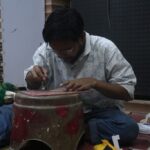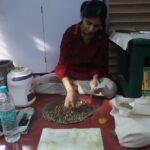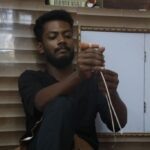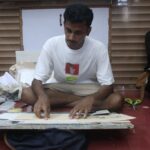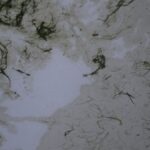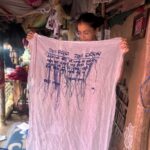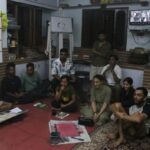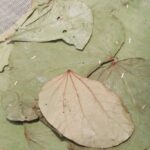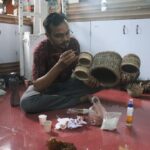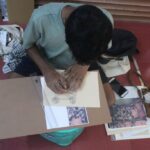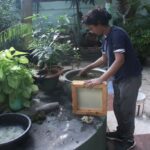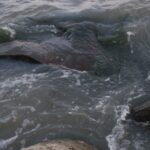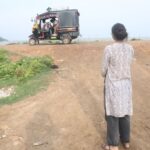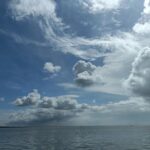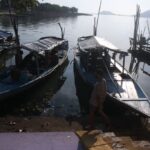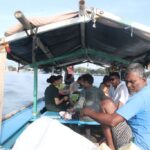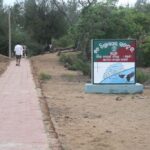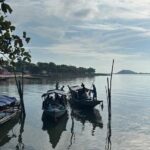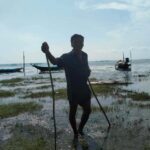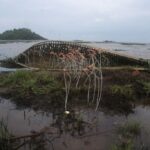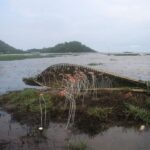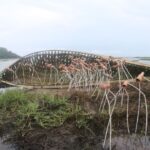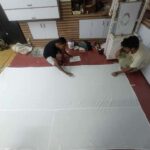
Following the last edition, this time as well, we aim to uncover another aspect of climate justice, especially in the context of Chilka. Our curatorial focus this time will be more about the polemic understanding of ‘surface’ beyond its literal explanation. Curatorially, we aim to demonstrate how we can elaborate our observations from the lens of micro-sustainability through cross-disciplinary artistic exchange. We welcome your practices if they engage in dialogues about collective criticism around the plural meanings of excavating narratives from beneath the surface of fractured reality that urban bodies have adopted around ‘eco-binaries’.
‘Whispers Beneath the Surface’ will be our area of discussion, which will trace unseen ecological chronicles through creative senses, allowing imagination to frame new narratives beyond post-colonial knowledge hierarchies. The goal is to initiate a collective dialogue involving the local community and practitioners, addressing ongoing habitat loss.
Objectives:
- Facilitating participatory dialogue around climate justice
- Engaging with post-colonial knowledge resources related to deep ecology
- Establishing a collaborative bridge between contemporary artistic disciplines and native community practices
- Promoting upcycling methods
- Supporting sustainable cultural practices across South Asia and Southeast Asia
Catalyst: Aasma Tulika (Delhi), Agwma Basumatari (Assam), Gopa Roy (Tripura), Ragav Seth (Meghalaya), Riya Chandwani (Mumbai), Shashikanta Mohanty (Odisha), Subham Sahu (Odisha), Tilottama B.(Dhaka)
Location: Chilika (Balugaon), Odisha.
Duration: 19th June – 30th June 2024.
For inquiries and applications, contact email: info@dotlinespace.co.in
This edition is Supported by Odi Art Museum (Odisha), Nine Fish Art Gallery (Mumbai), and Hidden Area (Sweden, Tracing A City & Meteor International Joint collaboration)
Our journey at Barkul, Chilika is an exciting blend of unexplored thoughts and trans-energy! Day 1 has been proactive, fostering interpersonal bonds and marking the beginning of our deep dive into eco-consciousness and community un-archives. Operating from our current workstation, we’ve been continuously discussing the proposition of community museums within our curatorial enqury. This sort new-evolving space has always intrigued me, and this experience is no different—it’s all about studying personal moments and recognizing the delicate balance of our world.
We shared meaningful conversations and bonded over shared memories, diving into discussions about native spaces and the politics of ‘individual vs. institution’. These moments, filled with personal anecdotes and reflections, helped build our informal connections. Exploring local sites, we embraced the transition and new order of community interest towards eco-binaries. This initial step towards our curatorial inquiries, ‘Whisper Beneath the Surface’, has sparked our collective interest in carefully listening to collective memories, the future of cross-cultural politics, eco-binaries, and nature as a hybrid agent.
In the coming days, our focus will be on decentralizing frameworks and reimagining the future beyond anthropocentric views, considering the impact of globalization and AI. Here’s to a journey of cohabitation and understanding!
How can we reshape the performative transit in the process of unlearning the superimposed reality within our practice?
Our second day began slowly, allowing for deeper inquiry. In Chilika’s main fish market, we observed the politics of consumption and the chaos symbolizing inner instability. Revisiting sites from Edition 1, we noted how ‘chaos is permanent’ in our rapidly evolving era. Speeding through sites in a vehicle revealed that faster travel limits the experience of space-time. Next time, we plan to re-engage at our own pace. Discussing Chilika later, new sensory insights emerged, focusing on nostalgia and deeper research. Curatorially, observing catalysts evolve as ‘odd’ elements helps us surpass existing binaries, moving toward a collective reunion.
Day 3 began with the first rain, offering fresh perspectives for many catalysts. This new engagement shifted our view of ‘dislocation’ from a negative to a necessary transformation. During the mark-making process, we observed that focusing too much on details can obscure the broader essence. It’s crucial to maintain a holistic view beyond the material’s immediacy. The concepts of ‘other’ and ‘we’ demand continuous reassessment, and understanding ‘Chilika’ beyond imposed narratives requires sustained engagement. As ‘outsiders,’ we often see through a touristic lens, raising questions about genuinely reconnecting with Odisha’s indigenous communities and understanding their perspectives on dislocation.
Day 4, the emphasis was on mutual empathy and collective mutualism rather than skepticism. The day’s discussions delved into the nuances of curatorial practice beyond conventional outcomes. The group engaged in a common listening exercise, exploring gaps and spaces for deeper connection. After 16 hours of dialogue, they reached a point of understanding beyond mere “whispers.” The text contemplates the complexities of communication in art, the reflective questioning of curatorial processes, and the metaphorical nature of dialogue. It highlights the importance of immersive, long-term engagement to fully embrace and critique contemporary practices, fostering friendship and sustained collaboration.
are we interested in anti-commonwealth text/literature? Can we share some interesting writers you feel we can consult?
Day 5, Perspective
Our shared learning experience highlights the societal expectation to perform well to justify our actions. The workshop engaged with the kids and fostered a sense of collective inquiry and capacity. As the day progressed, I faced an emotional state where I couldn’t distinguish between my teammates and Chilika, revealing our shared vulnerability. This can help us reform our strength by expressing our feelings openly. In the afternoon, we established that we need to maintain our personalized pace. In conversation with Anirban Datta’s work, we found a new direction toward understanding the medium and its transdisciplinary exposure. Our core motivation is to unfold the process of non-linear narrative through collective dialogue. Late-night conversations created a safe corner for us, breaking Chilika from its stereotype and identifying potential opportunities to see the site as a close ally rather than a distant entity. Can we document these emerging inquiries? Let’s discuss further.
Time can pass like an invisible fauna—the more we try to control it, the more we feel unusual resistance. Edition 2 is practically unfolding as a parallel universe where space and time are slowly redefined. Following yesterday’s discussion helped us uncover our fears and start observing places more through anecdotes rather than sites. Post-lunch, Aasma and I delved into the concept of ‘time-lapse’ or ‘time-pass,’ exploring how to intertwine memory time-space with various intersectional points, leading us to a new horizon open to understanding ecology amidst chaos. Agwma introduced us to a slow, engaging process, emphasizing the importance of being observant before taking on hard tasks, while Gopa and Riya took time to internalize their inner space, allowing the outer ecosystem to interact with their community practice interests. Ragav, like an unattached pendulum, relies on inner ecological negotiation, organizing tools as algorithms where climate conversations occur through an open-source mind-space. Shashikanta focused on the panopticon gaze, exploring nature beyond its romanticized notion, emphasizing resilience. Subham documented the fading sonic voices around Chilika, organizing data to capture the forgotten sound memories of Odisha and intertwining them with deformed spaces as metaphors for Chilika beyond its imposed reality. Tilottama’s poetic and personal work transcends individualism, presenting a paradox where the idea of ecology grows like a rhizome. Their transdisciplinary approach engages in the politics of stitching mindful exercises, adopting rigid discipline while allowing unstructured form, embodying co-existence as a flux that aligns closely with their progressive report.
Day 7, Perspective | We are building trust with each other while exploring our surroundings. Today was about understanding how to engage with trial and make practical decisions considering their proximity. All the catalysts actively engaged with the memory lane we have traversed around Chilika. They were now trying to make sense of how they could address their uncategorized inquiries within this short exploration period. In the morning, we organized the first draft of the progress report. I noticed that we are coordinating the entire situation from an inquisitive mode. Our engagement is diverse, filled with unresolved dilemmas and fractured understandings, but I am sure we will collectively resolve this crisis. Interestingly, in this ongoing cultural flux, we haven’t had much space to study political narratives beyond their surface appearances. We sense that if we continue organizing our thoughts without the stress of resolving every issue, we will eventually find a way where the commune is not just our responsibility but a sense of belonging.
How can we address ecological insurgency in a time of global silence?
Day 8 Observations: Before the open day, I noted that all the catalysts were working on preparing art boards for the outpost. Aasma is helping curatorial engagement with the happenings and networking of collective/personal narratives from personal to public domains. Shashikanta is mapping departure and settlement through various interpersonal connections. Riya wishes to develop a model for alternative engagement for the women’s community to empower them. Agwma shared a sensitive idea; he is curious to reproduce the memory from the ‘death of scenic visual’ site through woodcut. Gopa is still in the process but believes in mapping livelihood and landscape. Raghav and Subham are both quite inquisitive. Subham is trying to create some traditional outputs and combine them with sonic fragments. Tilottama’s common interest is identifying transit and how alternative pedagogy can help imagine community not from afar but through internal co-existence. Finally, Ajay, who just completed his studies, is trying to understand his institutional approach towards addiction and how we can help the new generation overcome it.
‘Allies’ is a passive term. I trust your instinct. Do you think we can trust mutual ecology?
Day 9, Perspective | As a team, we had a fulfilling day, meticulously crafted and planned with a curatorial vision to engage our instincts through practice rather than theory. My role as a methodologist involved observing the responses to the clusters formed, and I found a bridge—there is optimism that we are collectively making sense of this experience. The trust placed in the process is invaluable, and it is believed that the participants have felt the interconnectivity emerging in various layers. Once I returned to the studio, I had a short session to share my observations.
1. Can they feel their bodies—the rhythm, the flow, the inertia? This is the moment when Chilika emerges within them, transforming them. Perhaps they can embrace the silence, allowing this profound experience to resonate within them for a while.
2. Pride comes from the collective commitment to not leaving any trash behind (understanding that waste doesn’t truly exist). We summarized our activities responsibly, marking the beginning of a meaningful transition.
3. With care and solidarity, we will carry forward this energy and continue to delve into the ‘whispers underneath the surface.’
‘Whispers Beneath the Surface,’ following the last edition, we are here with an extended curatorial process of finding mutual space to uncover the subversive side of climate justice. This justice is not seen as a mandate but as a process of building a collective model for decolonial tools of interdependency in the global south, especially in the context of Chilika. Since we have been here for some time, there is a sense of personalizing the idea of Chilika on an interpersonal level. In this edition, our catalysts are more focused on tracing obstacles not as barriers but as ‘layers’ that can overlap, submerge, or reengage with transdisciplinary artistic methodology. Thus, one can interpret our outpost more from the polemic understanding of ‘surface’ beyond its literal explanation. We welcome your presence not as external observers but as living participants through whom we can recognize Chilika as a dialogue about collective criticism around the plural meanings of excavating narratives from beneath the surface of fractured reality that urban bodies have adopted around ‘eco-binaries.’

